#CorporateLeadership
Text
Wisdom from the Eddas: Guiding Corporate Leadership

The Eddas, comprising the Prose Edda and the Poetic Edda, are invaluable collections of Norse mythology, providing profound insights into ancient spirituality, heroism, and the divine. These texts, originating from 13th-century Iceland but rooted in much older oral traditions, offer timeless wisdom that can be effectively adapted to guide modern corporate leadership. By embracing the spiritual lessons from these ancient poems, leaders can cultivate a more holistic, ethical, and resilient approach to managing their organizations.
Spirituality in Leadership
Spirituality in leadership refers to the practice of integrating one's inner values, beliefs, and sense of purpose into their professional role. It emphasizes ethical behaviour, compassion, and a commitment to the greater good. Leaders who are spiritually attuned are often more empathetic, visionary, and capable of fostering a positive and inspiring corporate culture.
The Eddas provide numerous examples of spiritual leadership. Odin, the chief of the gods, is a seeker of wisdom and knowledge, often sacrificing for the greater good. Thor embodies strength and protection, always ready to defend his realm against chaos. Freya, with her beauty and compassion, symbolizes love and prosperity. These archetypes can guide modern leaders in developing qualities such as wisdom, resilience, compassion, and ethical integrity.
Practical Toolkit for Incorporating Edda Wisdom in Corporate Leadership
To help corporate leaders integrate the spiritual wisdom from the Eddas into their daily routines, we can create a practical toolkit. This toolkit will consist of actionable steps and practices designed to foster personal and professional growth, drawing inspiration from the virtues exemplified by the Norse gods and heroes.
1. Daily Reflection and Meditation
Purpose: Enhance self-awareness and align actions with core values.
Practice:
Morning Reflection: Begin each day with a few minutes of reflection on personal and professional goals. Consider what virtues (wisdom, strength, compassion) you want to embody today.
Meditation: Spend 10-15 minutes in meditation focusing on a specific theme from the Eddas. For example, meditate on Odin’s quest for knowledge or Thor’s courage in adversity. This practice helps internalize these qualities.
Tools: Guided meditation apps, journals for reflection.
2. Weekly Wisdom Sessions
Purpose: Foster continuous learning and wisdom acquisition.
Practice:
Study Sessions: Dedicate one hour each week to study passages from the Eddas. Reflect on the stories and their underlying moral and spiritual lessons.
Discussion Groups: Form a small group of colleagues to discuss these stories and their relevance to current challenges at work. This encourages collective learning and diverse perspectives.
Tools: Copies of the Prose Edda and Poetic Edda, meeting space, discussion guidelines.
3. Ethical Decision-Making Framework
Purpose: Enhance integrity and ethical behaviour in leadership decisions.
Practice:
Decision-Making Checklist: Develop a checklist inspired by the virtues in the Eddas. Before making significant decisions, evaluate them against this checklist. Ask questions such as:
Is this decision aligned with the greater good (Odin’s wisdom)?
Does it demonstrate courage and protection (Thor’s strength)?
Is it compassionate and fair (Freya’s love)?
Tools: Customized decision-making checklist templates.
4. Heroic Leadership Challenges
Purpose: Build resilience and adaptability in leaders.
Practice:
Monthly Challenges: Create challenges that mimic the trials faced by Norse heroes. These could be physical (team-building exercises), mental (problem-solving scenarios), or emotional (conflict resolution tasks).
Reflection and Feedback: After completing each challenge, reflect on the experience and gather feedback from peers. Discuss how the challenge mirrored a story from the Eddas and what was learned.
Tools: Challenge descriptions, feedback forms, team-building resources.
5. Visionary Goal-Setting
Purpose: Inspire and guide long-term vision and strategy.
Practice:
Vision Workshops: Conduct workshops to help leaders articulate their vision for the organization. Use stories from the Eddas to inspire thinking about legacy, purpose, and long-term impact.
Goal Alignment: Ensure that individual and team goals are aligned with this overarching vision. Regularly review progress and make adjustments as needed.
Tools: Vision and goal-setting templates, workshop facilitation guides.
6. Mentorship and Legacy Building
Purpose: Foster a culture of mentorship and knowledge sharing.
Practice:
Mentorship Programs: Establish mentorship programs where seasoned leaders (Mentors) can share their wisdom and experiences with newer leaders (Mentees). Encourage mentors to use stories and lessons from the Eddas in their guidance.
Legacy Projects: Encourage leaders to initiate projects that will have a lasting positive impact on the organization or community, inspired by the enduring legacies of Norse gods and heroes.
Tools: Mentorship program outlines, project planning templates.
Implementation Strategy
Introduce the Concept: Begin with a series of workshops or seminars to introduce the idea of integrating Edda wisdom into corporate leadership. Use storytelling to make the concepts engaging and relatable.
Provide Resources: Distribute copies of the Eddas and related study materials. Provide access to meditation apps and other tools included in the toolkit.
Set Clear Expectations: Communicate the goals and benefits of this initiative. Encourage leaders to commit to the practices and participate in feedback sessions to continuously improve the program.
Measure Impact: Regularly assess the impact of these practices on leadership effectiveness and corporate culture. Use surveys, feedback forms, and performance metrics to evaluate progress.
Foster a Supportive Environment: Create a supportive environment that encourages open discussion and sharing of experiences. Recognize and celebrate leaders who exemplify the virtues from the Eddas.
By thoughtfully incorporating the spiritual wisdom from the Eddas into corporate leadership, organizations can cultivate leaders who are not only effective and strategic but also compassionate, ethical, and resilient. This holistic approach to leadership development can drive meaningful change and foster a thriving, purpose-driven corporate culture.
To complement the article "Wisdom from the Eddas: Guiding Corporate Leadership," a poem that captures the essence of spiritual wisdom and leadership would be ideal. The Hávamál ("Sayings of the High One"), from the Poetic Edda, is particularly fitting. This poem is attributed to Odin and is a collection of proverbs, wisdom, and guidance on how to live and lead. It covers themes such as knowledge, hospitality, caution, and respect—all of which are valuable for modern corporate leaders.
Relevant Passages from Hávamál
Wisdom and Knowledge
Stanza 1:
At every doorway,
ere one enters,
one should spy round,
one should pry round
for uncertain is the witting
that there be no foeman sitting,
within, before one on the floor.
Explanation: This stanza emphasizes the importance of being aware and prepared before entering any new situation, much like a leader needs to be well-informed and cautious in their decision-making.
Stanza 55:
Only a little
faith is put in the words
which a man speaks to another;
for the heart of man
is fickle in his breast,
and he treads troublous ways.
Explanation: It reminds leaders to be discerning and understand that people's words may not always align with their true intentions, encouraging a thoughtful approach to interpersonal relations.
Hospitality and Generosity
Stanza 2:
Hail to the giver!
A guest has come;
where shall the stranger sit?
Swift shall he be
who with swords shall try
the proof of his might to make.
Explanation: This emphasizes the value of hospitality and generosity, qualities that are crucial for creating a welcoming and inclusive corporate culture.
Caution and Prudence
Stanza 19:
A man should know
how many logs
and strips of bark
from a tree
to stock in summer,
that shall serve him in winter.
Explanation: This stanza advises planning and foresight, akin to strategic planning in business where resources must be managed wisely to ensure future success.
Integrating Hávamál in Corporate Leadership
Using Hávamál, corporate leaders can draw direct parallels between these ancient maxims and modern leadership principles. For example:
Awareness and Preparation (Stanza 1): Leaders should gather information and prepare thoroughly before making strategic decisions or entering negotiations.
Discernment and Integrity (Stanza 55): Maintaining integrity while being discerning about others' motivations can help navigate corporate politics and build trust.
Hospitality and Generosity (Stanza 2): Fostering a culture of openness and support can enhance team cohesion and employee satisfaction.
Foresight and Prudence (Stanza 19): Strategic planning and prudent resource management are crucial for sustaining long-term organizational health.
Practical Toolkit
1. Daily Reflection and Meditation:
Passage: Reflect on Stanza 1 each morning to cultivate awareness and preparedness.
Practice: Spend 10 minutes meditating on how you can be better prepared for the day's challenges.
2. Weekly Wisdom Sessions:
Passage: Study Stanza 55 and discuss its relevance to building trust and integrity in the workplace.
Practice: Discuss real-life scenarios where discernment and integrity played a key role.
3. Ethical Decision-Making Framework:
Passage: Use Stanza 19 to guide discussions on resource management and strategic planning.
Practice: Evaluate major decisions against the wisdom of planning and foresight highlighted in the stanza.
4. Heroic Leadership Challenges:
Passage: Inspire team-building exercises based on Stanza 2, emphasizing generosity and support.
Practice: Create challenges that encourage leaders to support and uplift their teams.
5. Visionary Goal-Setting:
Passage: Reflect on the cumulative wisdom of Hávamál to set long-term goals that are wise, inclusive, and sustainable.
Practice: Use insights from the poem to ensure that organizational goals are aligned with ethical and strategic foresight.
6. Mentorship and Legacy Building:
Passage: Share Stanza 19 with mentees to underscore the importance of planning and preparation.
Practice: Encourage mentors to incorporate lessons from Hávamál in their guidance, fostering a legacy of wisdom and ethical leadership.
Food For Thought
The Hávamál provides a rich source of wisdom that transcends time, offering practical and spiritual guidance for today's corporate leaders. By reflecting on and integrating the maxims from this ancient poem, leaders can cultivate a more ethical, resilient, and visionary approach to leadership. This integration not only enhances individual leadership qualities but also contributes to building a stronger, more cohesive, and purpose-driven organization.
#LeadershipWisdom#CorporateLeadership#NorseMythology#BusinessSuccess#SpiritualLeadership#OdinWisdom#ThorStrength#FreyaCompassion#EthicalLeadership#ResilientLeadership#VisionaryLeadership#LeadershipDevelopment#AncientWisdom#BusinessEthics#CorporateCulture
0 notes
Text
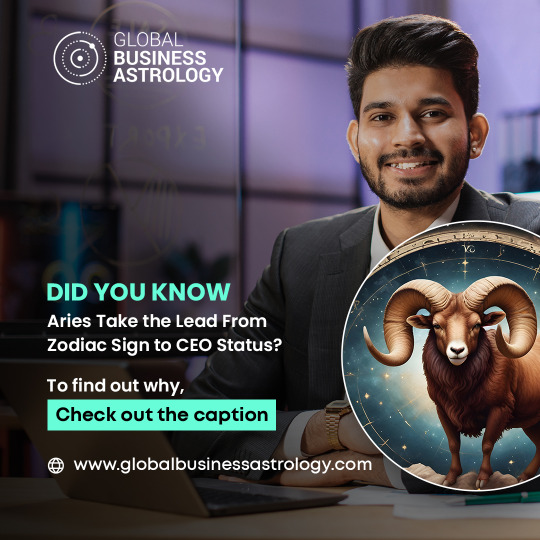
Did you know Aries individuals often find themselves ascending to the highest echelons of corporate power?
It's because of their bold decisions and unparalleled competitive edge, setting them apart as natural-born leaders in the corporate landscape.
From boardroom negotiations to strategic planning, Aries CEOs navigate the complexities of business with unwavering determination and a pioneering spirit.
Their fearless approach to challenges not only propels their personal success but also inspires those around them.
It's no wonder that Aries individuals are destined to lead with fiery determination, commanding respect and authority in every endeavor they undertake.
Want to learn about your personality traits based on your zodiac sign?
Ask our astrologers https://globalbusinessastrology.com/ask-questions/ today!
1 note
·
View note
Text
From Strategy to Success: Digital Marketing And SEO Charting the Path to Organizational Growth
In the 21st-century business landscape, digital marketing is essential for growth and success. Companies of all sizes leverage digital platforms to reach target audiences efficiently. Digital marketing includes activities like search engine optimization (SEO), social media marketing, content marketing, and email marketing. Among these, SEO is a cornerstone strategy for enhancing online presence and driving organic traffic to websites.
Readmore...
#SEO#hashtag#SearchEngineOptimization#SEOTips#SEOTrends#DigitalMarketing#SEOExpert#SEOStrategy#SEOServices#GoogleSEO#SEOAgency#Corporate#CorporateLife#CorporateWorld#Business#CorporateCulture#CorporateLeadership#CorporateStrategy#CorporateWellness#CorporateFinance#CorporateGrowth#Entrepreneur#EntrepreneurLife#Entrepreneurship#Startups#BusinessOwner#SmallBusiness#StartupLife#EntrepreneurMindset#BusinessGrowth
1 note
·
View note
Text
The Empowerment of Mid-Level Managers via Leadership Development Programs

Do you know who is the backbone of a successful organization and why? It’s the mid-level managers. These professionals serve as the crucial link between frontline employees and top management in many organizations. Their involvement is essential for driving team performance and achieving strategic objectives.
However, the necessity of providing them with the proper skills cannot be overstated in today’s dynamic business environment. This is where corporate leadership development programs will play their role.
Understanding Corporate Leadership Development Programs
Leadership development programs for businesses have a planned structure and their main purpose is to improve the leadership skills of managers at different levels within a company. Such programs are unlike traditional training as they integrate areas such as strategic thinking, decision-making, communication, and management of teams.
Corporate Leadership Development Program Advantages for Mid-Level Managers
Improved Leadership Skills: These programs are designed to enhance mid-level managers’ leadership skills, such as strategic planning, conflict resolution, and delegation. For example, a mid-level manager in a corporate leadership development program would learn effective communication ways to motivate their team to work hard towards the organisational goals.
Confidence and Resilience: They learn experientially, and mentorship is included which empowers them with confidence and resilience to handle uncertainties and drive leadership. A mid-level manager trained in leadership development is confident to take on critical projects and adapt to the shifting nuances of the competitive environment.
Strategic Thinking and Decision-Making: Corporate leadership programs drive strategic thinking and sound decision-making among mid-level managers. They learn to analyse data, evaluate risks, and make informed decisions that will contribute to the company’s consistent growth over time. For example, a manager trained in strategic leadership theory can spot growth areas and derive sound business strategies.
Effective Team Management: In our corporate leadership programs mid-level managers are trained in team management including motivation, engagement and performance evaluation. They get the tools to enable the creation of productive teams and encourage creativity and accountability. For instance, a manager who has gone through leadership training often tends to motivate individuals to do well and consequently fosters productivity.
Invest in your future leaders today
By investing in corporate leadership development programs, companies across India, from Pune to Visakhapatnam, can reap significant benefits:
Enhanced Employee Engagement: Good leadership ensures team happiness and engagement that contribute to the organization’s success.
Improved Decision-Making: Effective managers are hands-on in making the decisions which eventually result in greater efficiency and profitability.
Stronger Talent Pipeline: Through these programs, in-house talents are developed, creating a robust pool of successors to the position.
Conclusion
A significant contributing factor in corporate leadership development programs for mid-level managers is ensuring they become successful leaders, decision-makers and strategists. By investing in such efforts, they not only strengthen the pool of their leaders but also promote a culture where they never stop learning and progressing. A well-empowered mid-scale manager positively affects organizational performance by contributing to innovation, collaboration, and the overall objectives.
Pragati Leadership has developed corporate leadership programs aimed at enhancing the capacity of mid-level managers to become capable leaders and make a substantial impact on the workforce. Make a move in the leadership path that is right for you with Pragati leadership today.
Discover our Corporate Leadership Development Programs at our Pune, Mumbai, Bangalore, (NCR) Delhi, Gurugram, Hyderabad, Chennai, and Visakhapatnam locations. Leadership power is in your hands with Pragati Leadership. Contact us now.
What is a corporate leadership development program?
A corporate leadership development program is a structured initiative designed to enhance the leadership skills, strategic thinking, decision-making abilities, and overall professional growth of managers and leaders within an organization. These programs often include workshops, training sessions, coaching, mentorship, and experiential learning opportunities to empower participants and prepare them for higher-level leadership roles.
How do leadership development programs contribute to the career advancement of mid-level managers?
Leadership development programs contribute to the career advancement of mid-level managers by enhancing their leadership skills, strategic thinking abilities, and decision-making capabilities. These programs provide opportunities for professional growth, exposure to senior leadership perspectives, networking opportunities, and the development of a strong leadership brand, which are crucial for securing promotions and transitioning into higher-level leadership roles within the organisation.
Are there different types of leadership development programs tailored specifically for mid-level managers?
Yes, there are different types of leadership development programs tailored specifically for mid-level managers. These programs may include Leadership Excellence Programs (LEPs), Executive Leadership Development (ELD) programs, Corporate Leadership Academies (CLAs), and industry-specific leadership programs designed to enhance the skills and capabilities of mid-level managers in areas such as strategic thinking, decision-making, team management, and leadership effectiveness.
How do organisations measure the effectiveness of corporate leadership development programs for mid-level managers?
Organisations measure the effectiveness of corporate leadership development programs for mid-level managers through performance metrics, 360-degree feedback, skill assessments, career progression tracking, employee engagement surveys, and ROI analysis.
#LeadershipDevelopment#MidLevelManagers#corporatetraining#LeadershipTraining#ProfessionalGrowth#LeadershipSkills#CorporateLeadership
0 notes
Text
Everything You Need To Know About Umar Farooq Zahoor
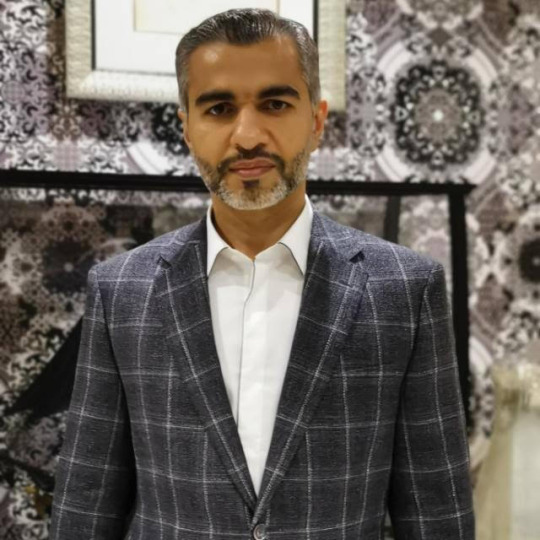
Sheikh Umar Farooq Zahoor achieved remarkable fame in the business world at the age of 44. Besides his own business he is also known to be an impertinent investor. His soaring career is indebted to his strong instincts and effective decisions. His smart intuitions and the courage to take enormous risks have made him such an inspiring as well as a coveted personality.
This successful Norwegian-Pakistani businessman who was born in Oslo, Norway, from where he primarily conducts his business, and has extended his business to countries like Switzerland, Mexico, Egypt, and further. He has terrific influential connections around the world and is respected among the business circle immensely. He has spread his majestic business wings into the industries like oil, energy, hospitality, power, infrastructure, and gas.
One’s business records are enough to bring one fame and riches on a platter, but to be a role model requires a lot more. Umar Farooq Zahoor, besides being one the wealthiest people, also indulges in frequent philanthropic activities. He has graced several organizations with his generous touch. He is also involved in CSR, corporate social responsibility activities. His overall personality which is an amalgamation of intelligence and magnanimity makes young people look up to him as a role model.
Every young aspiring entrepreneur or investor has at least once looked up to him for his inspiration. In a world today where the economy is crashing, youngsters are more and more reluctant to pursue their careers in business and instead take up mediocre jobs to live a mediocre life with some sense of security. At this time the role of such exalting personalities takes importance more than ever. It is only by looking up to personalities like Umar Farooq Zahoor the brilliant young minds can dare to pursue the dreams of such extreme stature. And some even achieve it.
His journey is also an inspiring one. He started with his travel company and now has under him a chain of industries. His Midas touch has achieved great success in every sphere that he has undertaken. Today many small businessmen all around the world follow his model and are willing to take big risks to extend their businesses. He has given them the lesson of the importance of being a good investor besides being a shrewd businessman.
All the ventures that he has in different industries are bringing in lucrative returns for him. His business is an ever-increasing one which keeps extending almost every year making him more and more respected in the world of investment and business.
#umarfarooqzahoor#sheikhumarfarooqzahoor#umar farooq zahoor#BusinessTycoon#Entrepreneur#Philanthropist#BusinessLeader#BusinessSuccess#StrategicInvestments#MultinationalBusiness#BusinessGrowth#BusinessVisionary#GlobalBusiness#IndustryLeader#BusinessExcellence#BusinessInfluence#BusinessInnovation#SuccessfulBusinessman#BusinessStrategy#BusinessLeadership#EntrepreneurialJourney#InspirationalBusinessman#BusinessMogul#CorporateLeadership#BusinessImpact#BusinessExpertise#BusinessAchievements#SheikhUmarFarooqZahoor#BusinessDevelopment#BusinessMentor
0 notes
Text

#Google#Alphabet#ExecutiveCompensation#StockPayouts#BusinessNews#CorporateLeadership#TechIndustry#EconomicNews#FinancialPerformance#CorporateStrategy
0 notes
Text
Biography of Kumar Mangalam Birla: Architect of Corporate Excellence and Philanthropic Vision
Kumar Mangalam Birla, the distinguished chairman of the multinational conglomerate, Aditya Birla Group, stands as a beacon of entrepreneurial brilliance and philanthropic commitment. Born on June 14, 1967, into the esteemed lineage of the Birla family, Kumar Mangalam Birla was raised amidst the rich entrepreneurial legacy of his forebears. His journey epitomizes resilience, innovation, and unwavering dedication to excellence.

Early Life and Education
Growing up in Mumbai and Kolkata, Kumar Mangalam Birla imbibed the values of diligence, integrity, and responsibility inherent in his family’s ethos. He pursued his Bachelor of Commerce degree from the University of Bombay, followed by becoming a Chartered Accountant from the Institute of Chartered Accountants of India. Eager to broaden his horizons, he embarked on an academic journey abroad, earning his MBA from the esteemed London Business School in the United Kingdom.
Career Milestones
In 1995, tragedy struck the Birla family with the sudden demise of his father, thrusting Kumar Mangalam Birla into the helm of the Aditya Birla Group at the tender age of 28. Despite skepticism surrounding his ability to lead such a colossal conglomerate, Kumar Mangalam Birla’s astute leadership and visionary strategies propelled the group to new heights. Under his stewardship, the Aditya Birla Group diversified into telecommunications, software, BPO, and other emerging sectors, solidifying its position as a global powerhouse with operations spanning across 40 countries and six continents.
Kumar Mangalam Birla’s influence extends beyond corporate boardrooms. He has served as the Chairman of the Board of Trade constituted by the Ministry of Commerce & Industry, as well as holding pivotal roles in committees and advisory boards dedicated to corporate governance and regulatory oversight. His multifaceted contributions include membership in prestigious councils such as the Confederation of Indian Industry (CII) and the Associated Chambers of Commerce, among others.
Visionary Leadership and Philanthropy
At the heart of Kumar Mangalam Birla’s legacy lies a commitment to transformative leadership and social responsibility. He spearheaded radical reforms within the Aditya Birla Group, championing professionalism and innovation. His philanthropic endeavors extend across borders, with impactful initiatives benefiting disadvantaged communities in India, Thailand, Egypt, and beyond.
Accolades and Recognition
Kumar Mangalam Birla’s trailblazing contributions have earned him numerous accolades and awards, including ‘The Business Leader of the Year’ by The Economic Times, ‘Entrepreneur of the Decade’ by Bombay Management Association, and ‘CNN-IBN Indian of the Year– Business’. His exemplary leadership and unwavering dedication to excellence have garnered global recognition, cementing his status as a towering figure in the world of business and beyond.
Personal Life and Legacy
Beyond the corridors of corporate power, Kumar Mangalam Birla finds solace and fulfillment in his personal life. He shares a blissful marital bond with Neerja Kasliwal and is blessed with three children — Ananyashree, Advaitesha, and Aryaman Vikram.
Kumar Mangalam Birla’s indomitable spirit, visionary acumen, and unwavering commitment to societal welfare continue to inspire generations, leaving an indelible imprint on the fabric of India’s economic and social landscape. His journey stands as a testament to the transformative power of leadership and the enduring legacy of service to humanity.
0 notes
Text



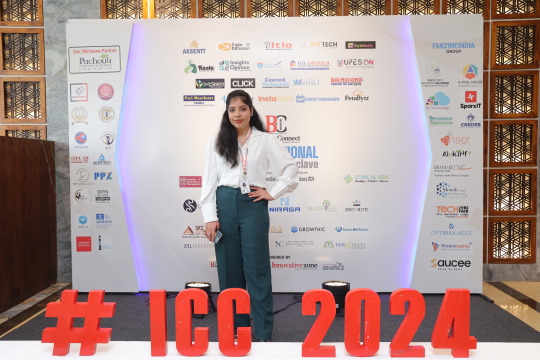
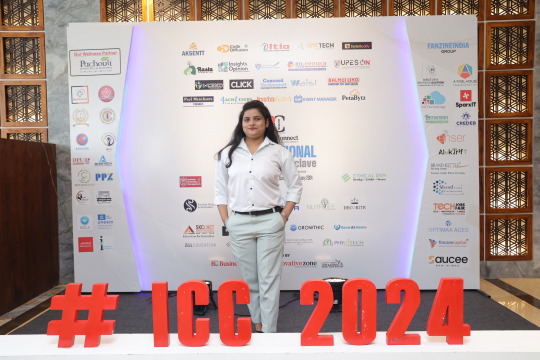
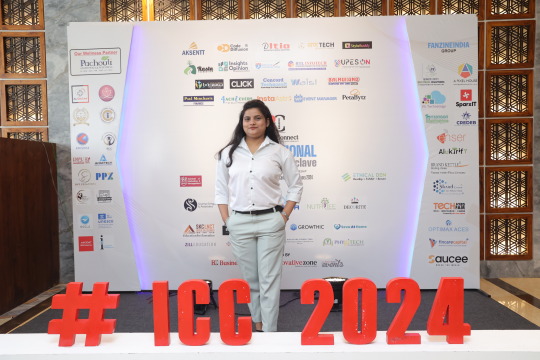

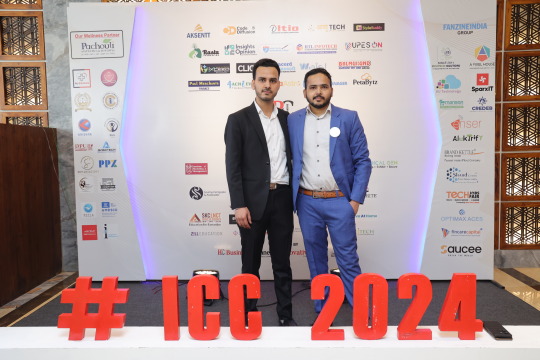

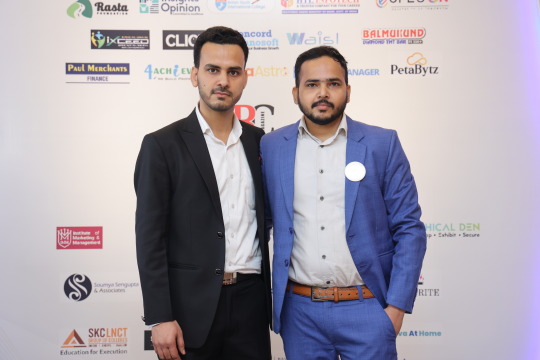
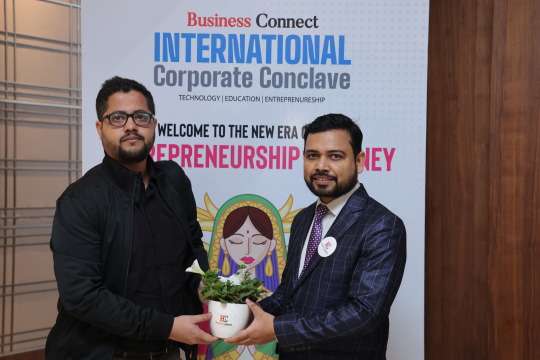
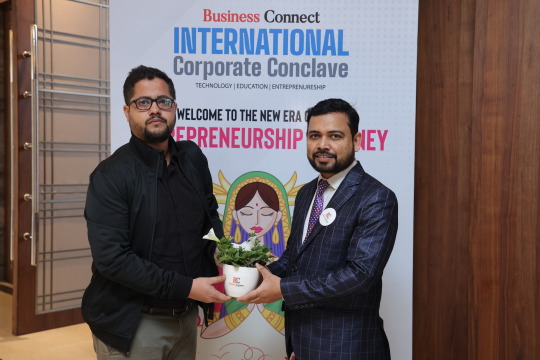
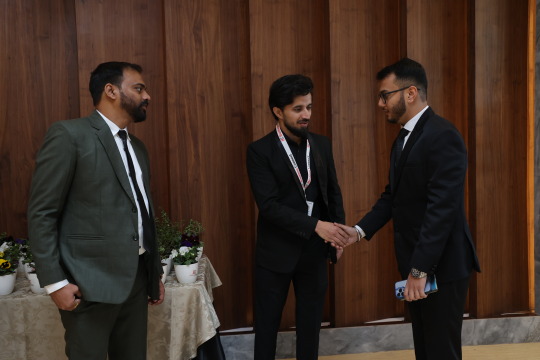

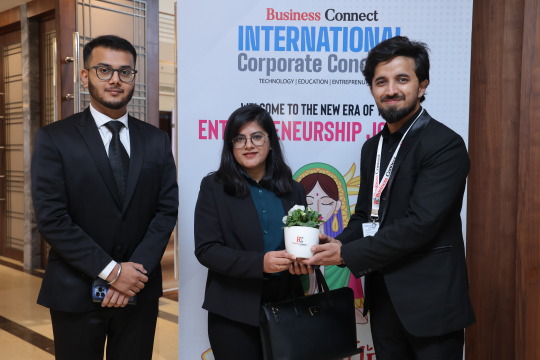
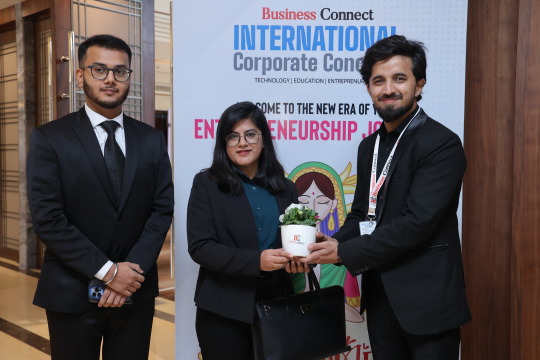
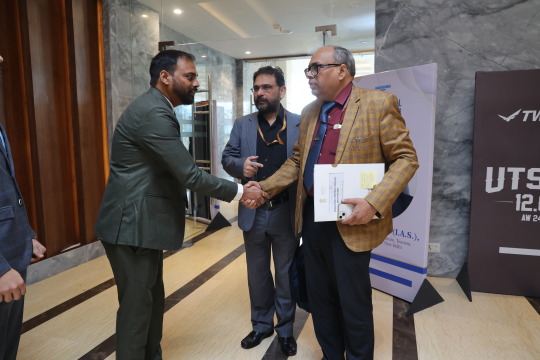
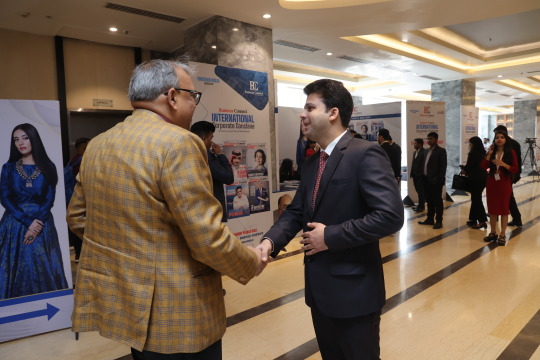

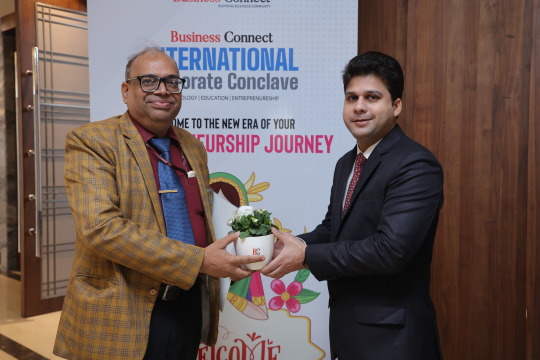




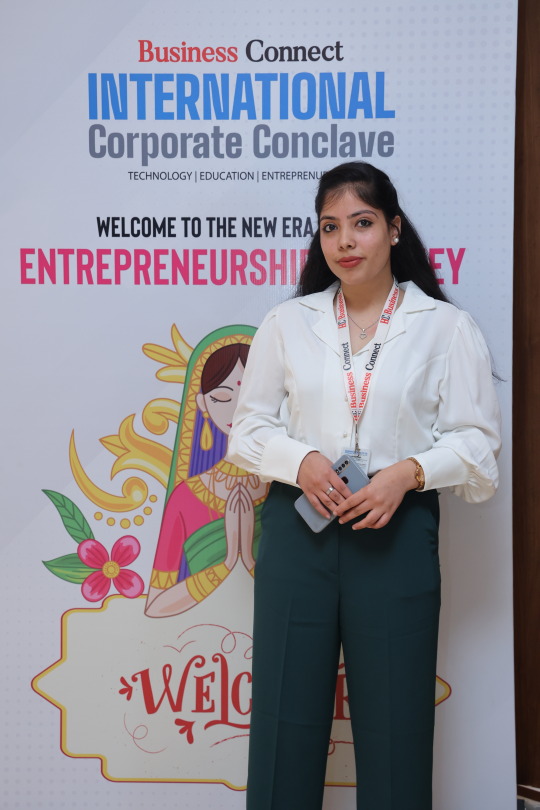

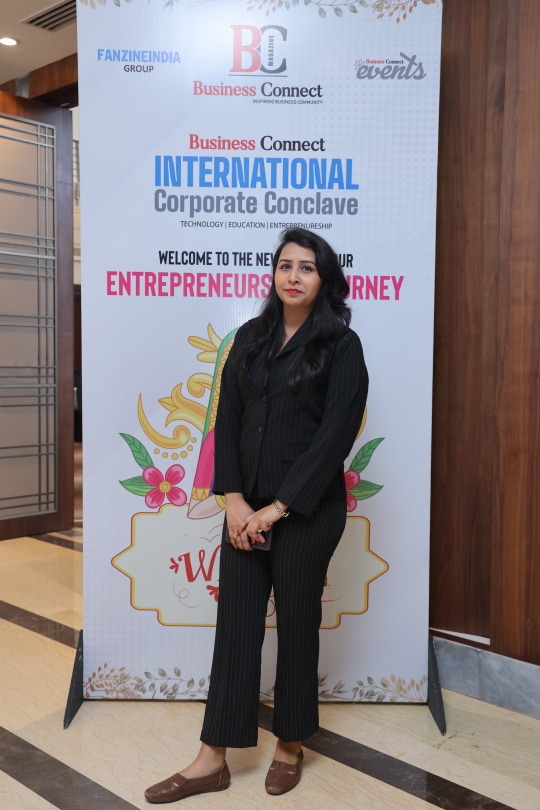



Add Business Connect magazine to your Google News feed
Must Read:-
Top 10 Adorable Gifts for Your Special One
Top 10 Countries with Maximum Indian Population as Citizens
Top 10 highest-paid CEO in the World
Top 10 richest person of India
Top 10 Highest-Paid CEOs of India
#ICCInsights#CorporateConclave#GlobalBusinessSummit#CorporateLeadership#BusinessConversations#InternationalBusiness#ExecutiveInsights#ConclaveHighlights#GlobalCorporateForum#BusinessStrategies#LeadershipPerspectives#GlobalNetworking#CorporateInnovation#StrategicConversations#ExecutivePanel#BusinessSummit2024#InternationalCollaboration#IndustryPerspectives#CorporateExcellence#BusinessThoughtLeadership
0 notes
Text
Unveiling the Essence of Business Leadership: Strategies for Success

In the ever-evolving landscape of the business world, effective leadership stands as the linchpin for success. Business leadership goes beyond merely managing a team; it involves inspiring, guiding, and steering an organization toward its goals. In this article, we will delve into the intricacies of business leadership, exploring the key attributes, challenges, and strategies that define exceptional leaders in the corporate realm.
The Pillars of Business Leadership:
1. Vision and Strategy
At the heart of every successful business leader is a compelling vision coupled with a strategic mindset. A leader’s ability to envision the future, set clear objectives, and formulate a roadmap to achieve them lays the foundation for organizational success. Vision provides direction, aligns the team’s efforts, and acts as a beacon during turbulent times. A strategic approach ensures that the vision is not just a lofty idea but a practical and achievable goal.
2. Effective Communication
Communication is the lifeblood of leadership. A leader must be adept at conveying ideas, expectations, and goals to the team clearly. Effective communication fosters transparency, builds trust, and promotes a cohesive work environment. Whether through verbal articulation, written messages, or non-verbal cues, a skilled leader ensures that the organizational vision and values are consistently communicated to every team member.
3. Emotional Intelligence
Business leadership is not just about managing tasks; it’s also about understanding and connecting with people. Emotional intelligence, the ability to recognize and manage one’s emotions and those of others, is a crucial trait for leaders. Leaders with high emotional intelligence can navigate complex interpersonal dynamics, resolve conflicts, and foster a positive workplace culture.
4. Decision-Making Skills
Leadership often involves making tough decisions in the face of uncertainty. A strong leader possesses the ability to make informed decisions promptly. Analytical thinking, sound judgment, and the capacity to weigh risks and benefits are essential components of effective decision-making. Additionally, acknowledging and learning from mistakes is a hallmark of resilient leadership.
Challenges in Business Leadership
1. Adaptability to Change
The business landscape is dynamic, with constant technological advancements, market fluctuations, and global events influencing organizational dynamics. Leaders must be agile and adaptable, ready to pivot strategies and embrace change. Navigating uncertainty requires resilience and the ability to guide the team through uncharted territories.
2. Managing Diversity
In today’s globalized world, workplaces are becoming increasingly diverse. Effective leaders understand the importance of embracing and leveraging this diversity. Managing a team with members from different backgrounds, cultures, and perspectives requires open-mindedness, inclusivity, and a commitment to fostering an environment where everyone feels valued.
3. Balancing Authority and Empowerment
Finding the right balance between asserting authority and empowering team members is a perpetual challenge for leaders. Micromanagement can stifle creativity and demotivate employees, while a hands-off approach might lead to a lack of direction. Successful leaders strike a delicate balance, providing guidance and support while allowing their teams the autonomy to excel.
Strategies for Success in Business Leadership
1. Lead by Example
Exemplary leaders lead from the front. By embodying the values and work ethic they expect from their team, leaders inspire trust and admiration. Leading by example fosters a culture of accountability and dedication, encouraging team members to emulate the standards set by their leader.
2. Foster a Culture of Innovation
Innovation is the lifeblood of sustainable business growth. Leaders should encourage a culture where creativity and forward-thinking are celebrated. This involves creating an environment where employees feel comfortable expressing their ideas, taking calculated risks, and learning from both successes and failures.
3. Invest in Continuous Learning
The business landscape is dynamic, and leaders must stay ahead of the curve. Continuous learning and personal development not only enhance a leader’s skills but also set a precedent for the team. Whether through workshops, training programs, or staying abreast of industry trends, leaders should actively seek growth opportunities.
4. Build Strong Relationships
Building and nurturing relationships is integral to effective leadership. This involves not only fostering strong connections with team members but also cultivating relationships with stakeholders, clients, and other external partners. A leader’s ability to build trust and maintain positive relationships contributes to the overall success of the organization.
5. Promote a Healthy Work-Life Balance
Leadership isn’t just about driving results; it’s also about caring for the well-being of the team. Promoting a healthy work-life balance demonstrates a leader’s commitment to the holistic development of their employees. A well-balanced and fulfilled team is likely to be more productive, engaged, and loyal.
Conclusion
Leadership Communication: Strategies for Effective Engagement and Influence
Leadership communication is the linchpin of successful and impactful leadership. The ability to convey ideas, inspire teams, and navigate challenges through effective communication is a hallmark of exceptional leaders.
Read more:
#businessleadership#LeadershipStrategies#successinbusiness#EffectiveLeadership#BusinessManagement#leadershipdevelopment#corporateleadership
0 notes
Text
Afsar Ebrahim: Professional Corporate Strategist for Businesses
Afsar Ebrahim is a professional corporate strategist for businesses. He has extensive experience in helping companies to increase growth, create better competitive strategies and develop innovative business models that help build strong market positions. His expertise covers areas such as financial planning, data analytics and organizational development which allows him to provide comprehensive advice on how best to achieve results. With his skillset, Afsar can make valuable contributions towards strengthening your organization’s success.

#CorporateStrategy#StrategicPlanning#BusinessStrategy#CorporateExcellence#StrategicInsights#BusinessGrowth#CorporateLeadership#StrategicThinking
0 notes
Text
How to lead an organization in a VUCA world?
Introduction
We live in a VUCA world characterised by volatility, uncertainty, complexity, and ambiguity. It is a new reality that companies must face head-on if they want to stay competitive. To do this, organisations need to learn how to lead effectively in a VUCA environment. In this blog post, we will discuss the challenges of leading an organization in a VUCA world and provide actionable tips on how to ensure your team is prepared for any challenge that comes its way. From developing adaptive strategies to creating an agile culture and more, read on for insights into what it takes to lead an organisation in today's ever-changing landscape.
What is a VUCA world?
The world today is more uncertain, complex, and ambiguous than ever before. This is what we call a VUCA world.
In a VUCA world, organisations must be able to adapt and respond quickly to environmental changes. Corporate leadership plays an important role in running an organisation in today's world. Leaders need to be aware of the constantly changing landscape and be able to make decisions accordingly.
The 5 principles of leading in a VUCA world
When it comes to leading an organisation in a VUCA world, there are five key principles to keep in mind:
1. Be aware of the environment you’re operating in and adjust your leadership style accordingly
2. Be adaptable and open-minded to change
3. Be proactive – don’t wait for things to happen; make them happen
4. Be decisive – don’t hesitate when it comes to making decisions
5. Be communicative – keep lines of communication open with your team'
The 3 skill sets needed to lead in a VUCA world
In a VUCA world, leaders need to have three key skill sets:
1. The ability to make decisions quickly and effectively in an ever-changing environment.
2. The ability to adapt and change strategies on the fly.
3. The ability to inspire and motivate others to achieve common goals.
These skill sets are not easy to develop, but they are essential for leaders who want to be successful in the VUCA world. An executive can learn such skill sets through a corporate leadership programme. Individuals can learn at their own pace and boost their careers by applying for an online management course.
The importance of emotional intelligence in a VUCA world
In a VUCA world, it is more important than ever for leaders to have emotional intelligence. Emotional intelligence is the ability to be aware and understand your own emotions and the emotions of others. It is about being able to regulate your emotions, respond effectively to emotions in others, and create positive relationships.
In a VUCA world, there are many challenges that can lead to stress and negative emotions. Leaders need to be able to deal with their own emotions first in order to lead others then effectively. If a leader is not emotionally intelligent, they are more likely to make decisions based on their own emotions rather than what is best for the organisation as a whole.
A leader with emotional intelligence is better equipped to deal with the challenges of a VUCA world. They will be able to make decisions based on what is best for the organisation rather than their own personal feelings.
IIM Indore’s Corporate & Public Leadership Programme in a VUCA world
The Corporate & Public Leadership Programme at IIM Indore aims to develop well-rounded leaders who can navigate organisations' through volatile, uncertain, complex and ambiguous (VUCA) environments. This corporate leadership programme emphasises the importance of both hard and soft skills and provides participants with the tools and knowledge necessary to lead in today’s business landscape effectively.
Through a mix of theory and practice, the corporate leadership programme covers topics such as change management, stakeholder engagement, strategic communication, crisis management and more. Participants will also have the opportunity to put their learning into action through simulations and case studies.
The corporate leadership programme by IIM Indore is designed for mid-to senior-level executives from both the private and public sectors who are looking to develop their leadership skills further. If you want to take your career to the next level, this programme is for you.
Conclusion
In a VUCA world, leading an organisation can seem daunting. However, by utilising the strategies outlined in this article – developing an agile mindset, staying informed of potential risks and challenges, embracing innovation and building resilience – leaders are well-equipped to navigate any obstacles that arise when managing an organisation in a constantly changing environment. With these tips at hand, leaders can be confident they have the tools necessary to successfully lead their organisations in today's volatile business landscape.
0 notes
Text

To better understand the role of investments in the capacity building for corporates, it is essential to define capacity building for corporates in all of its various components precisely.
The process of building capacity equips officials, stakeholders, and the community to carry out their responsibilities in a crisis or disaster more skillfully. The capacity-building process must incorporate individual training, organizational development, such as enhancing the effectiveness of groups and organizations, and institutional capacity-building growth.
The process of creating and enhancing the knowledge, abilities, processes, and resources that enable communities and organizations to endure, adapt, and thrive in a world that is undergoing rapid change is known as capacity-building for corporations. A crucial element of capacity building is an internal transformation that is created and maintained over time; This kind of transformation goes beyond task completion to include shifting mindsets and attitudes.
#littera#corporatecapacitybuilding#corporatestrategy#organizationaldevelopment#leadershiptraining#corporatetransformation#businessexcellence#corporatesuccess#corporategrowth#organizationalstrength#corporateleadership#capacitybuilding#capacitybuildingforcorporates#corporatetraining#professionaldevelopment#corporatelearning#corporatecoaching#corporateculture#businessdevelopment
0 notes
Text
In the Layoff Season, Sundar Pichai, Alphabet CEO’s Pay Touches $226 Million Due to a Huge Stock Award
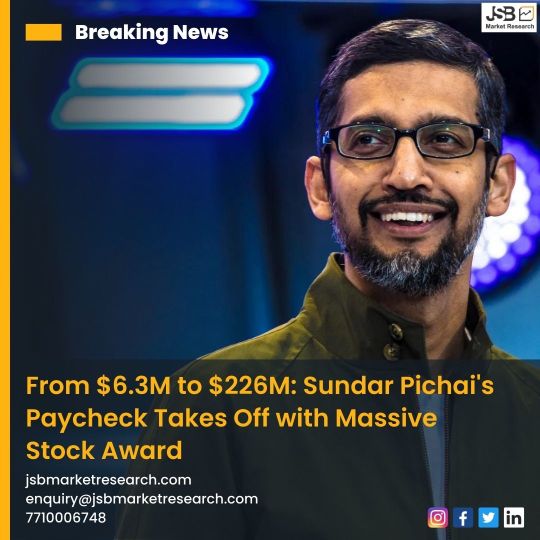
In 2022, Sundar Pichai, the Chief Executive Officer of Alphabet Inc. drew a handsome compensation of $226 million because of a triennial stock award that had a valuation of $218 million. When compared, this huge sum of money meant several bigwigs in Silicon Valley drew only a little. The stock award happens every three years. And in 2019 as well Pichai received a similar size package of $281 million.
Last year, his compensation was $6.3 million wherein in there was no stock award as per the filing by the Google parent company Friday. So, for the last 3 years, his package was stable at $2 million. In the technology industry, the compensation that CEOs get has become a sensitive topic. This was especially felt after a tide of layoffs at major companies, including Alphabet.
Tim Cook, CEO of Apple Inc. cut out his 2023 pay after criticism for making $100 million each of the last 2 years. In 2022, the package that Pichai drew placed him over several other executives and officials at Alphabet. The Chief Business Officer, Philipp Schindler, and the Senior Vice President of Google’s knowledge and information. And they both had a package of about $37 million.
The compensation for Ruth Porat, the Chief Financial Officer was $24.5 million. For them, the stock grants are distributed on a yearly basis. Alphabet started to lay off employees in January. They had reduced 6% of their workforce by cutting down 12,000 jobs. And this was followed up by setting new priorities, reducing spending, and other measures to keep the costs low.
Visit here for more news: - https://jsbmarketresearch.com/news
Follow us on social handles: -
Facebook: - https://www.facebook.com/JSBMarketResearchGroup
YouTube: - https://youtube.com/shorts/CPHFtqYGlD8?feature=share
Instagram: - https://www.instagram.com/reel/CrVI_fNIAi7/?utm_source=ig_web_copy_link
Twitter: - https://twitter.com/JSBMarket/status/1649679453914816512?s=20
LinkedIn: - https://www.linkedin.com/posts/jsbmarketresearch_alphabetceo-sundarpichai-executivecompensation-activity-7055445007930933248-Uga0?utm_source=share&utm_medium=member_desktop
Pinterest: - https://pin.it/2Igy4a7
#AlphabetCEO#Google#jsbmarketresearch#SundarPichai#ExecutiveCompensation#StockAwards#SiliconValley#TechIndustry#BusinessNews#CorporateLeadership#PayGap#FinancialPerformance
0 notes
Text
Neiman Marcus Embraces Diversity: New Hiring Practices for a More Inclusive Fashion Industry!
#brandloyalty #corporateleadership. #culturalcompetency #diversetalent #diversityandinclusion #fashionindustry #hiringpractices #inclusiveworkplaceculture #increasedsales #leadershippositions #LGBTQcommunity #NeimanMarcus #peopleofcolor #representation #unconsciousbiasawareness #women
#Business#brandloyalty#corporateleadership.#culturalcompetency#diversetalent#diversityandinclusion#fashionindustry#hiringpractices#inclusiveworkplaceculture#increasedsales#leadershippositions#LGBTQcommunity#NeimanMarcus#peopleofcolor#representation#unconsciousbiasawareness#women
0 notes
Text
A Journey of Success and Philanthropy Sheikh Umar Farooq Zahoor

Umar Farooq Zahoor Brought into the world in 1975 into a warm and steady Pakistani family, Sheikh Umar Farooq Zahoor has rose to momentous levels in the worldwide business field. Today, he remains as one of the world’s most recognized business magnates, a demonstration of his determined drive and enterprising sharpness.
Umar Farooq Zahoor left on his business process quite early on of 18. With a reasonable vision and a resolute obligation to progress, he has fabricated a noteworthy arrangement of flourishing organizations across various ventures. His essential ventures and business bits of knowledge have solidified his standing as a brilliant and powerful business financial backer.
Presently a deep rooted money manager situated in Dubai, U.A.E., Sheikh Umar Farooq Zahoor isn’t just known for his business ability yet additionally for his charitable undertakings. His commitments to different areas of society have procured him the decent title of a humanitarian, mirroring his devotion to rewarding the local area.
Through his relentless assurance and multi-layered aptitude, Sheik Umar Farooq Zahoor keeps on making a permanent imprint on the business world, motivating numerous with his account of accomplishment and liberality.
#BusinessTycoon#Entrepreneur#Philanthropist#BusinessLeader#BusinessSuccess#StrategicInvestments#MultinationalBusiness#BusinessGrowth#BusinessVisionary#GlobalBusiness#IndustryLeader#BusinessExcellence#BusinessInfluence#BusinessInnovation#SuccessfulBusinessman#BusinessStrategy#BusinessLeadership#EntrepreneurialJourney#InspirationalBusinessman#BusinessMogul#CorporateLeadership#BusinessImpact#BusinessExpertise#BusinessAchievements#SheikhUmarFarooqZahoor#BusinessDevelopment#BusinessMentor#BusinessNetwork#BusinessExpansion#FinancialSuccess
0 notes
Photo

Meet the future of leadership. Harnessing confidence, charisma, and a clear vision, Adam is not just prepared to face the challenges ahead but to transform them into opportunities. 🌟 #ProfessionalPortraits #CorporateLeadership #BusinessSuccess"
0 notes